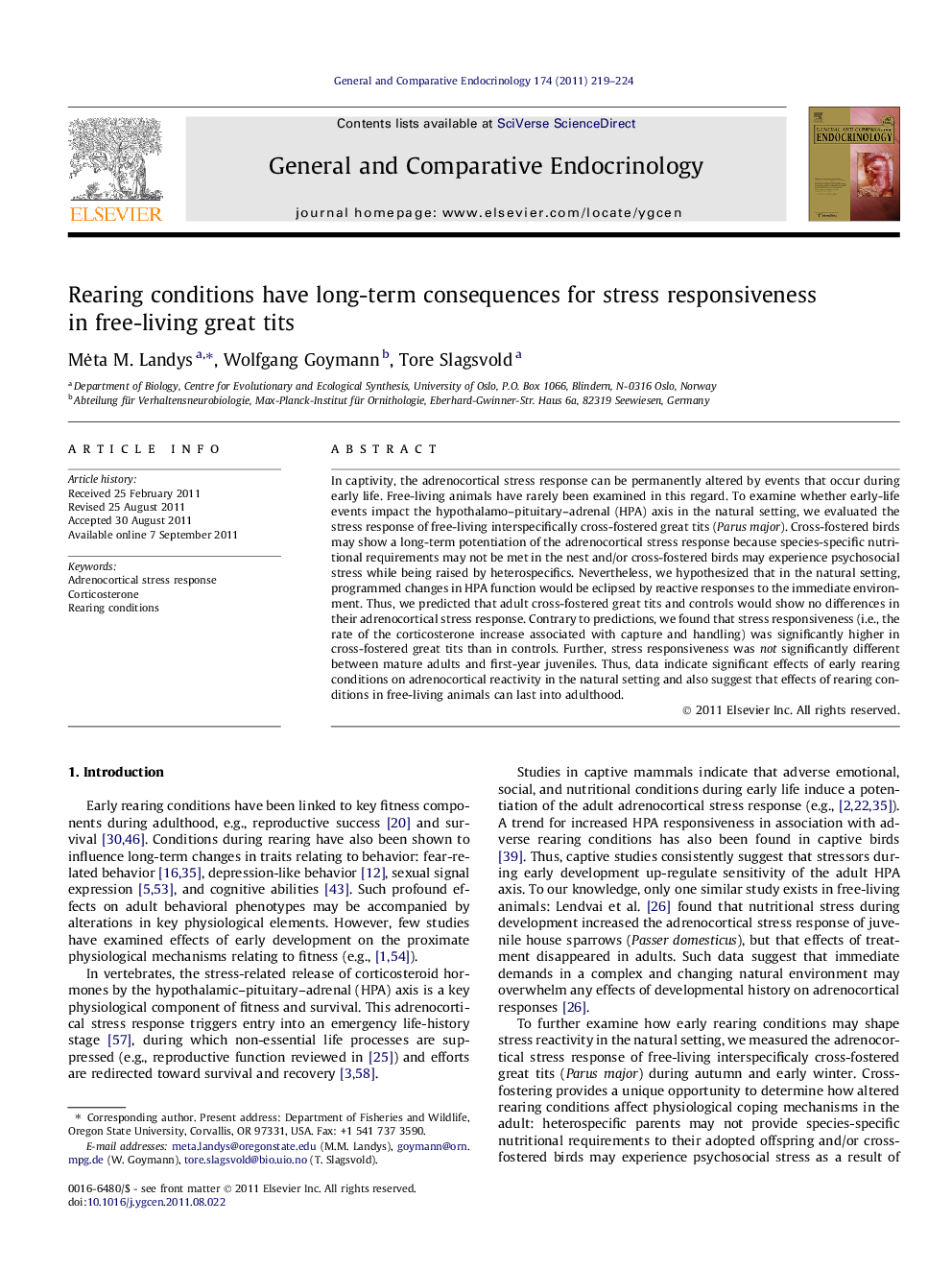| Article ID | Journal | Published Year | Pages | File Type |
|---|---|---|---|---|
| 2800789 | General and Comparative Endocrinology | 2011 | 6 Pages |
In captivity, the adrenocortical stress response can be permanently altered by events that occur during early life. Free-living animals have rarely been examined in this regard. To examine whether early-life events impact the hypothalamo–pituitary–adrenal (HPA) axis in the natural setting, we evaluated the stress response of free-living interspecifically cross-fostered great tits (Parus major). Cross-fostered birds may show a long-term potentiation of the adrenocortical stress response because species-specific nutritional requirements may not be met in the nest and/or cross-fostered birds may experience psychosocial stress while being raised by heterospecifics. Nevertheless, we hypothesized that in the natural setting, programmed changes in HPA function would be eclipsed by reactive responses to the immediate environment. Thus, we predicted that adult cross-fostered great tits and controls would show no differences in their adrenocortical stress response. Contrary to predictions, we found that stress responsiveness (i.e., the rate of the corticosterone increase associated with capture and handling) was significantly higher in cross-fostered great tits than in controls. Further, stress responsiveness was not significantly different between mature adults and first-year juveniles. Thus, data indicate significant effects of early rearing conditions on adrenocortical reactivity in the natural setting and also suggest that effects of rearing conditions in free-living animals can last into adulthood.
► Rearing environment significantly affects stress reactivity in free-living great tits. ► Effects on the adrenocortical stress response persist into adulthood. ► Long-term changes in behavior may underlie differences in stress reactivity.
